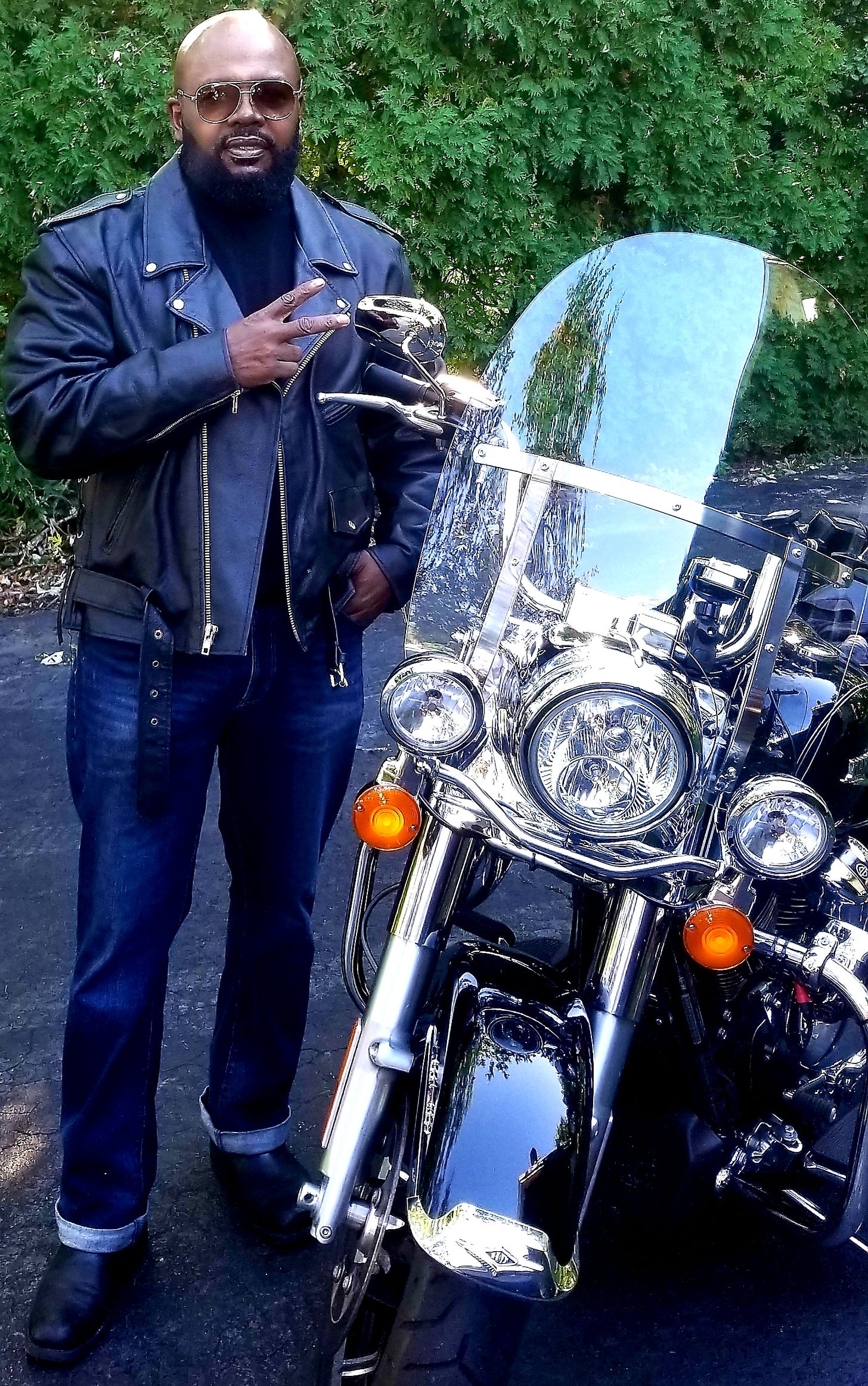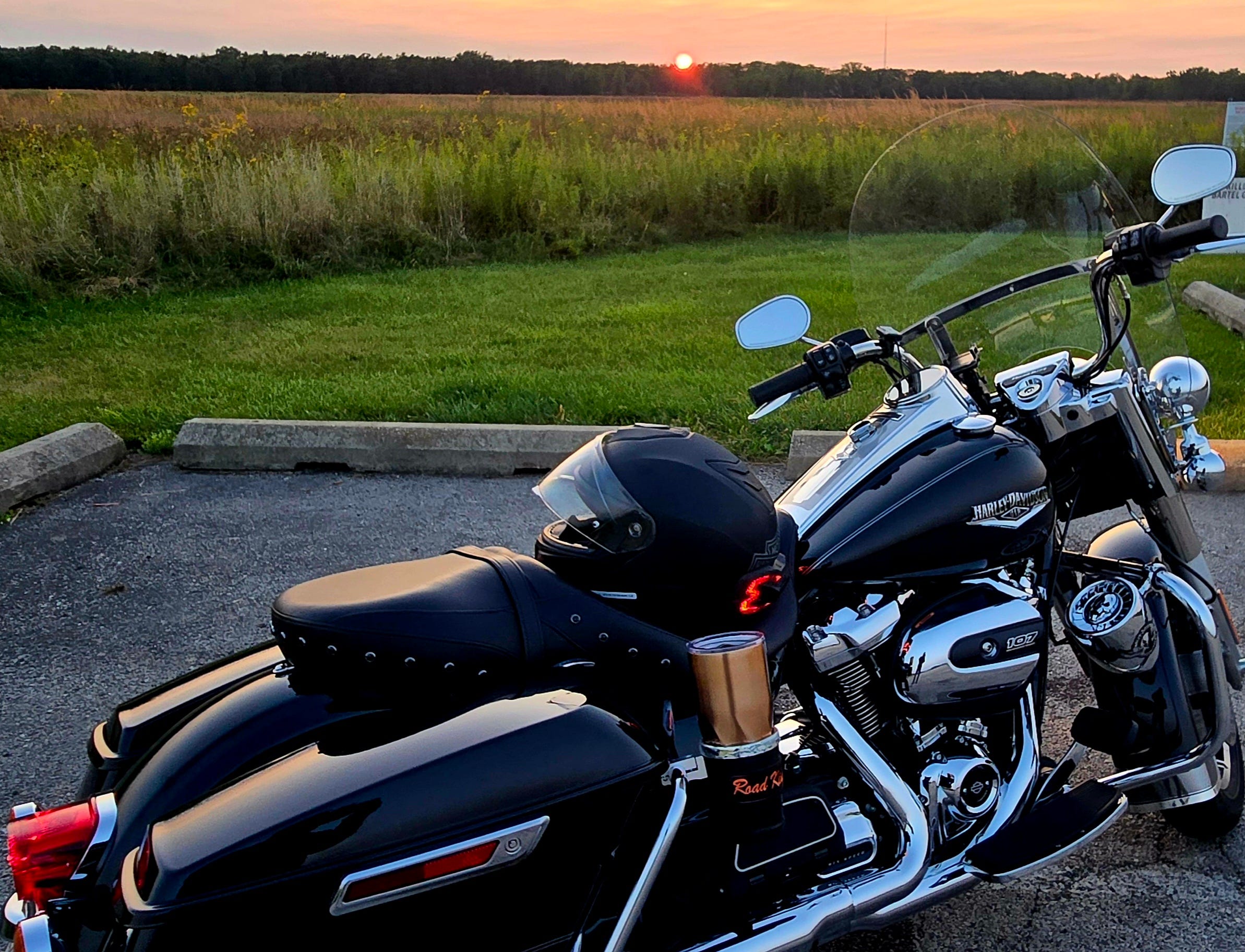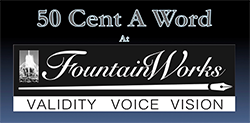Riding to Live Amid The Staggering Toll of Black Male Mortality
My rides usher me into the realm of protecting my self, sanity and humanity, in a world in which my fellow brothers and I tip the scale as victims of homicide, suicide, mass incarceration and disease
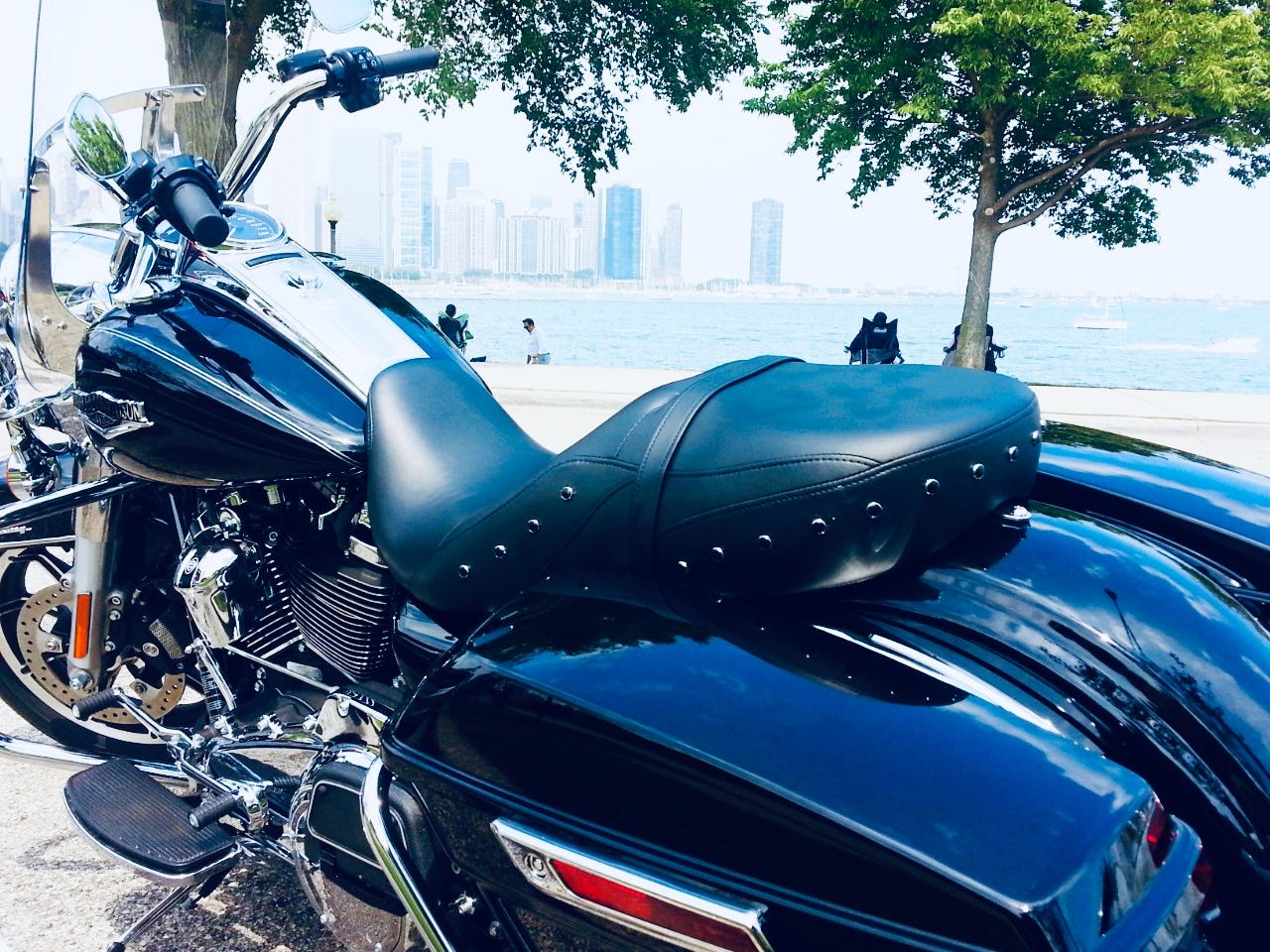
By John W. Fountain
I call her Django—my shiny chrome and Black steed—upon whom I have ridden over back roads and highways toward quiet rivers or glistening lakes with the golden sun in my face, or amid the elements of wind, rain and cold, most often in solitude. It is my great escape.
And Django is my chosen vehicle of transport away from those things that gnaw almost daily at my psyche and soul as a Black man in America. That would steal my peace and joy to the point of making life untenable, perhaps unlivable, though I realize and must confess that my soothing respite with Django alone is not enough to foster my longevity.
Still, my Harley rides are therapeutic. They remove me from the angst of naysayers, critics, backstabbers and other assorted “haters.” From the disrespect, slights and innuendo that surround me like gnats, that leech my lifeblood. From the pressures of life, of being protector, producer and provider for others.
My rides usher me into the realm of protecting my own self, my sanity, even my humanity, in a world in which my fellow brothers and I as a group tip the scale as victims of homicide, suicide, mass incarceration and general Black male morbidity. PTSD is in our DNA. Our collective current condition amounts to no less than a state of emergency.
“Black men are 4 times as likely to die from suicide as Black women, according to the Centers for Disease Control and Prevention.” –American Psychological Association
In fact, in Chicago, according to a 2021 report titled, “The State of Health for Blacks in Chicago,” the homicide rate among African Americans is nine times higher than the rate among non-Blacks. The homicide rate among Black men alone was more than 18 times the rate among non-Blacks, cites the report by the Chicago Department of Public Health.
That’s just one barometer of our endangerment.
According to the U.S. Centers for Disease Control and Prevention, “Black men are 26 percent more likely than white, non-Hispanic men to die of heart disease and 17 percent more likely to die of cancer. They are 86 percent more likely to die of prostate cancer, which kills 13.8 Black men per 100,000…”
Moreover, a pamphlet, distributed by the Center for Health of Minority Males at the University of Mississippi Medical Center, aims to increase awareness and sound the alarm about Black men’s health and endangerment and the need for policies and education:
“There are approximately 21 million black men in the United States. Black men suffer far worse health than any other racial group in America.” There are a number of “reasons for this, including racial discrimination, a lack of affordable health services, poor health education, cultural barriers, poverty, employment that does not carry health insurance, and insufficient medical and social services catering for black men.”
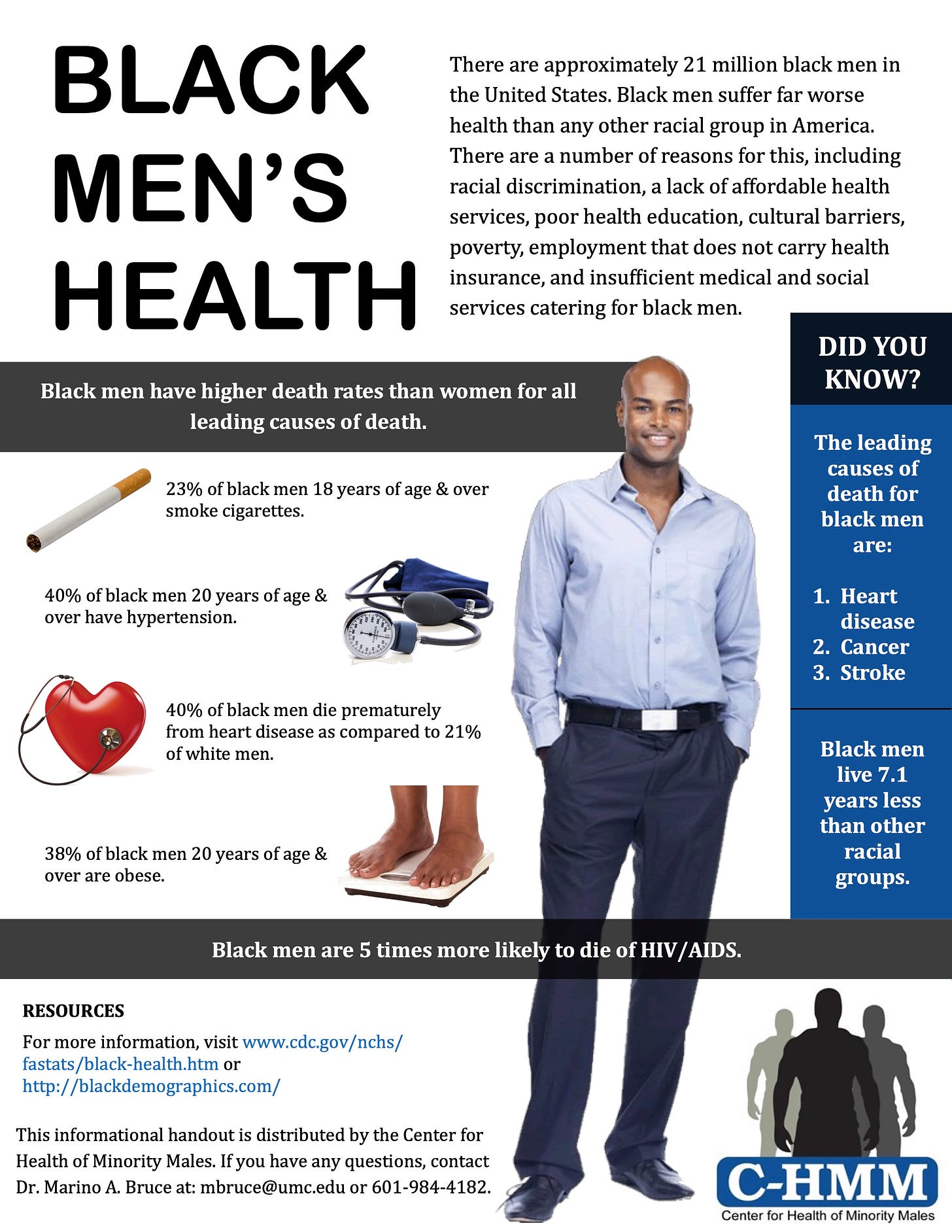
We die daily.
It is a fate from which my excursions upon Django can neither insulate nor protect me. In the streets of urban America we die, and even beyond those pools of blood and shell casings. Prematurely we expire from heart disease, prostate cancer, alcohol use, drug overdoses, suicide. The month of September is National Suicide Prevention Month. The national 988 Suicide & Crisis Lifeline is free and confidential.
According to the American Psychological Association, “For the first time, so-called ‘deaths of despair’—deaths from suicide, alcohol use, and drug overdoses—are now higher among Blacks than Whites, tripling from 36.24 per 100,000 people in 2013 to 103.81 per 100,000 people in 2022. Moreover, Black men are four times as likely to die from suicide as Black women, according to the Centers for Disease Control and Prevention.
“Other recent studies show that childhood adversity and racial discrimination forecast later thoughts of suicide among young Black men, while exposure to gun violence—far higher among Black than White Americans—is significantly associated with lifetime rates of suicidal thoughts, preparation, and attempts.”
As Black men, we dwell in an America that especially renders invisible certain Black men. Chief among these are poor or incarcerated and ex-convicts who swim for survival in a toxic socio-economic river that consumes far too many of them whole.
“Black men die more than 7 years earlier than do US women of all races, and black men die younger than all other groups of men, except Native Americans,” according to a report titled, “Visible and Invisible Trends in Black Men’s Health: Pitfalls and Promises for Addressing Racial, Ethnic, and Gender Inequities in Health,” published in 2019 in the National Library of Medicine.
The report adds that US Census data “demonstrate that there are more than 1.5 million black men between the ages of 25 and 54 years who are missing from daily life as a result of premature mortality (900,000 black men) or incarceration (625,000 black men) (83). Black men who are released from prison are also invisible as a result of not being represented in national survey samples, which, therefore, grossly mischaracterize black men’s social, economic, and health statuses.”
What’s needed, according to analysts, is a plan “to counter the social, economic, and health outcomes that relegate black men to invisibility from an early age” and “to identify solutions to ensure that black men reap the benefits of public health, economic, social, and political interventions.”
What’s also needed, admittedly, is for us as Black men to be proactive about our own health, both physically and mentally, which are inexorably tied to our wellness. To not be too proud or afraid to resist the cultural stigma of seeking counsel or therapy if needed.
In Chicago, the homicide rate among Black men alone is more than 18 times the rate among non-Blacks. –Chicago Department of Public Health
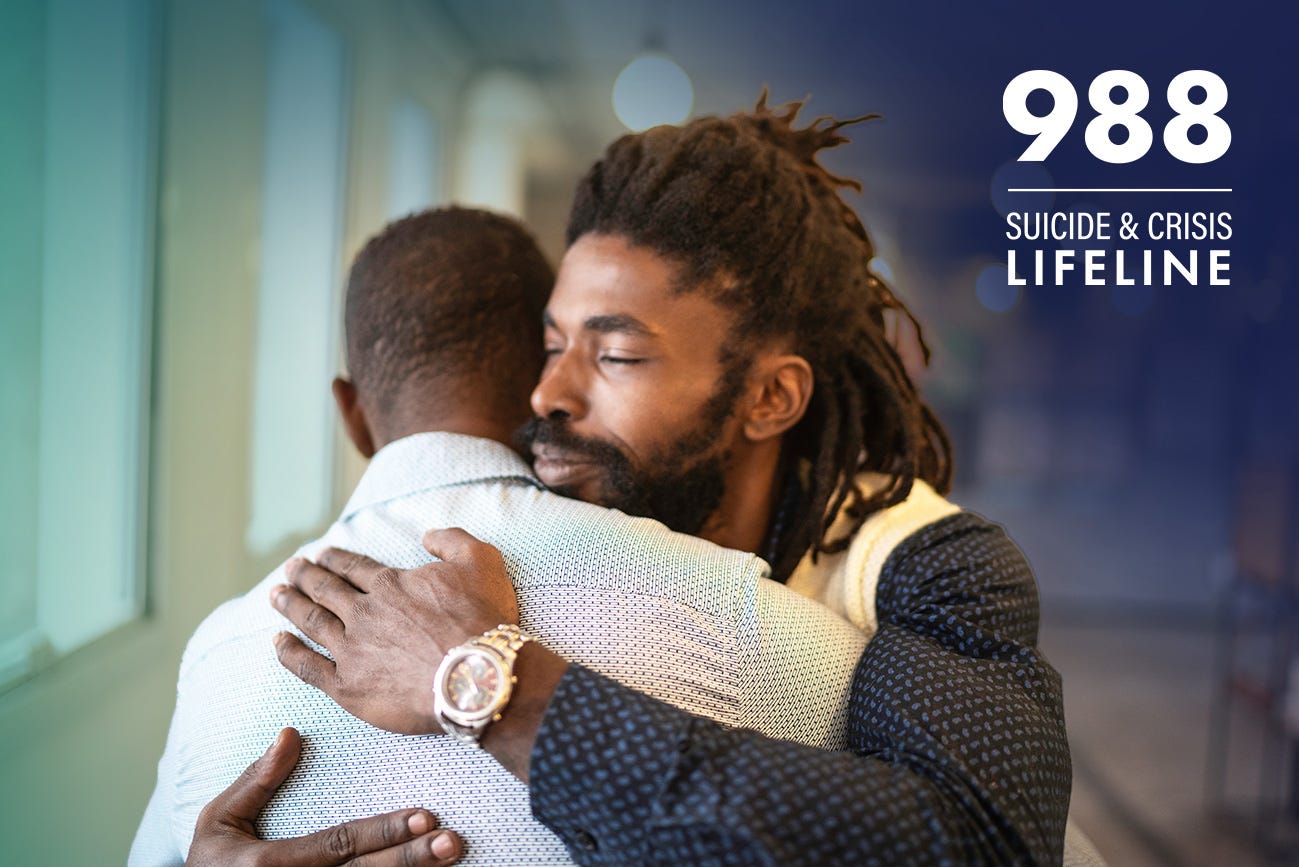
My high blood pressure medication, my trips to the gym and being conscientious about what I eat and how much as well as my routine physicals, prayer, meditation and brotherhood are all part of my self-healthcare plan. But so are my rides with Django. They soothe my soul.
Fact is, through my grief and most difficult times, I sometimes can't think, can't feel, can't pray, can't find my bearings or the words to soothe. I remember once, before my mom, who had Alzheimer's, died, I was struggling. Overwhelmed during a weekend of caring for her at my home, I asked my sister to watch my mom for an hour and I climbed aboard my motorcycle.
I rode to a local Starbucks, where I happened to run into a brother I knew, who was also out for a spin on his Hog. We found we had in common a mother with Alzheimer's and our grief as sons who were designated caregivers destined to lose our mothers twice. We laughed and traded war stories and I rode back to the fire but renewed.
Truth is, I've been called a loner. And I admit that used to bother me. But I came to understand that I am never alone, and that in those times when there is no one but me, Jesus and Django, the elements—wind and sun and water—I can feel my life's battery recharging exponentially.
Riding my bike even just a few miles has become one of my interludes from the acts of life. It takes my mind off everything. It is an exercise in rejuvenating solitude. It allows me to breathe. It frees me, in a sense, of all that is wrong, difficult, unsolvable or unfixable in my life, if only for a redemptive moment in time. It reduces the world to Django and me.
It's hard, I suppose, for non-riders to understand. My riding has taken the place of what playing basketball once did for me. It helps level me out. Helps me get through. It is something I love. Something that is just for me and me alone. Something that I can always look forward to—at least until winter—no matter what’s going on in my life.
I suspect the time will come someday for me to retire my riding boots. But for as long as I am physically able to ride, I will ride.
After I buried my mom 10 years ago, I found solace in the hum of my engine and the roar of my pipes and the sun beating down on my face amid my tears. After my dad died two years later, and after my grandfather's death, I was grateful to be able to look forward to riding Django and the relief and joy that riding brings—out there, sun beaming down, wind at my back over a country road.
My prayer is that my brothers will each find their own version and vehicles to peace, solace, restoration and wellness. I want to live. I want us all to live and grow old.
Rest In Peace, brother Vincent
Email: Author@johnwfountain.com




